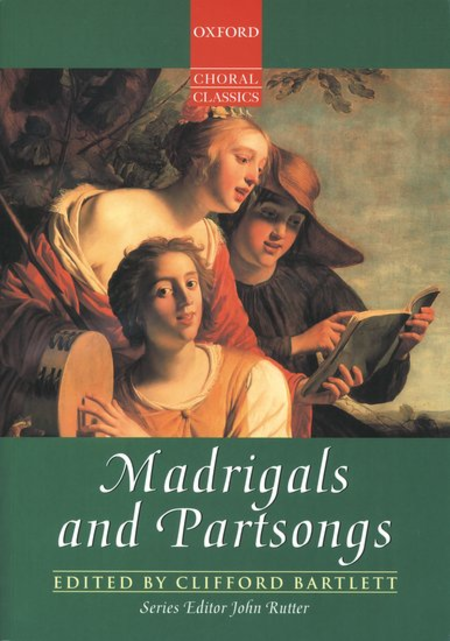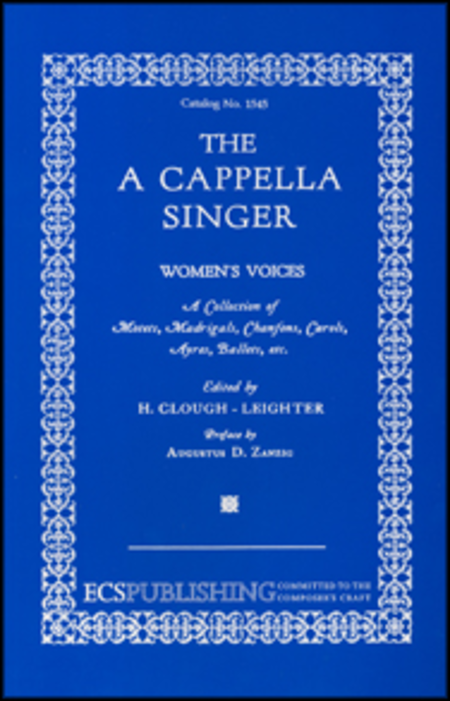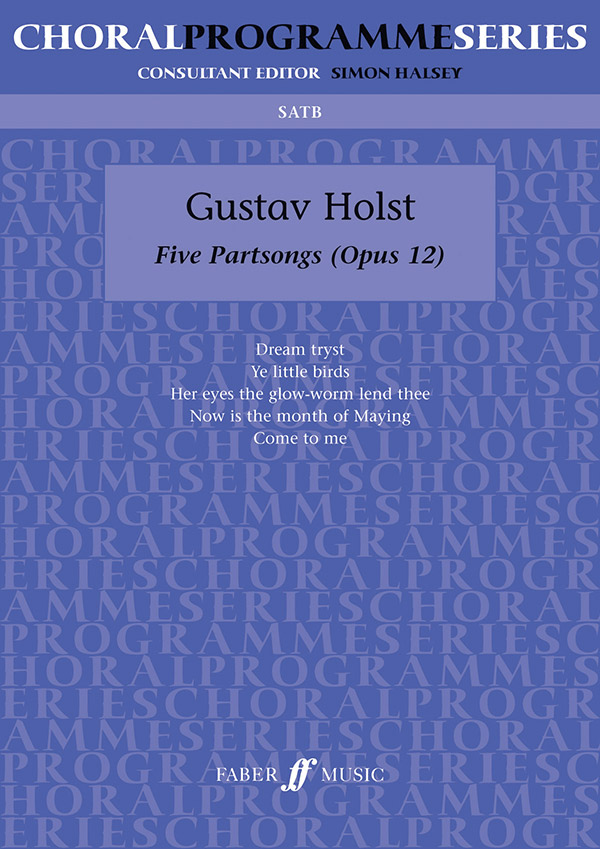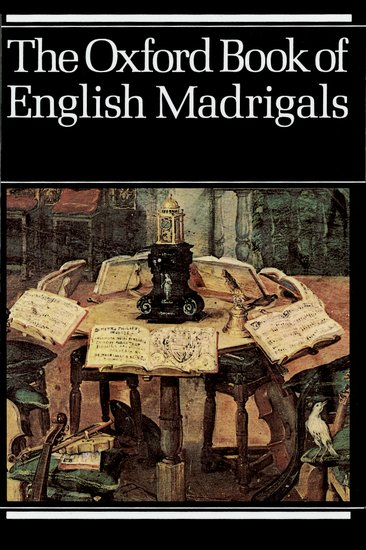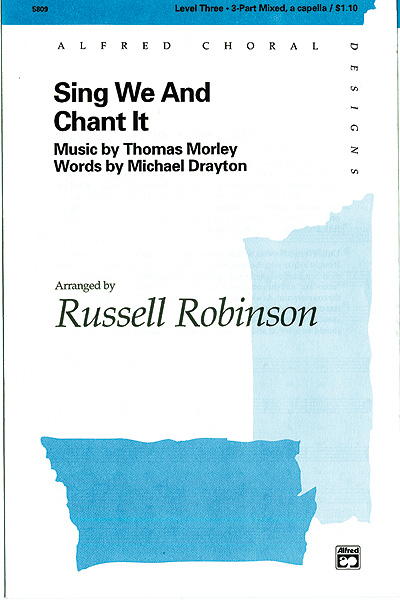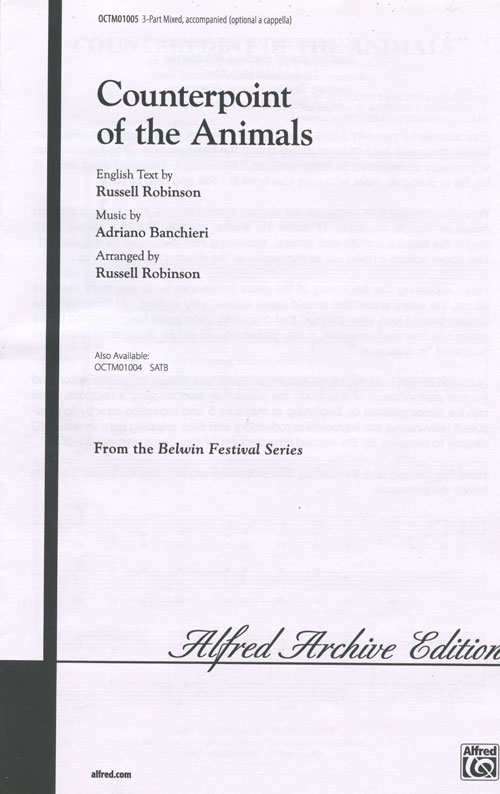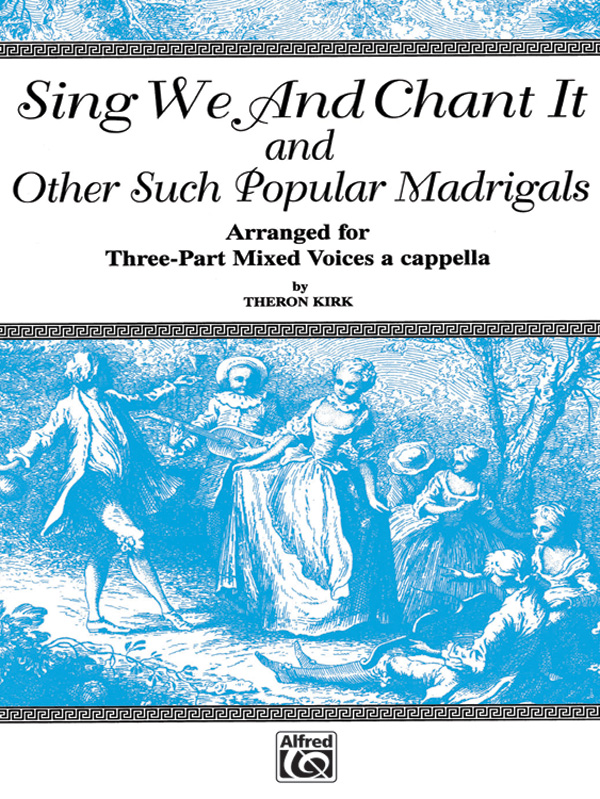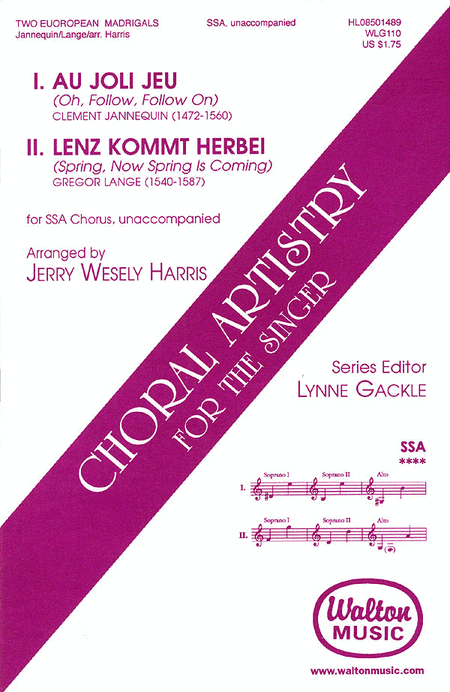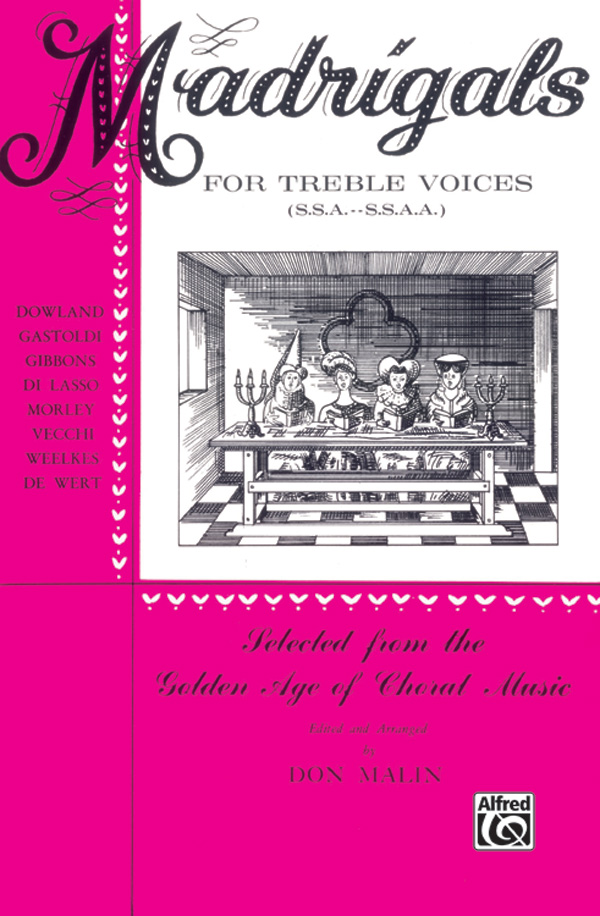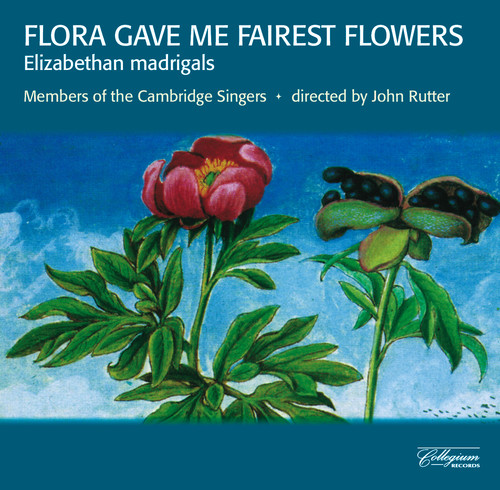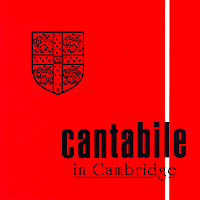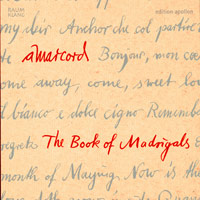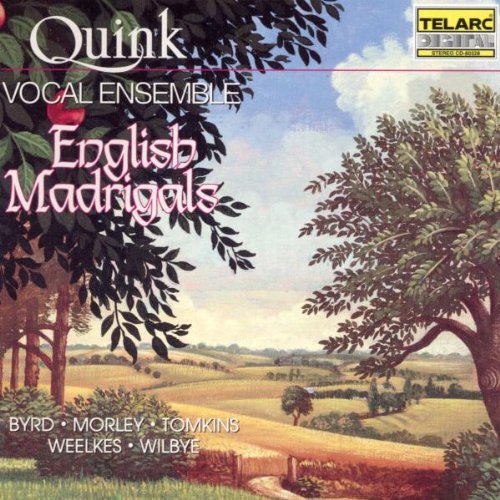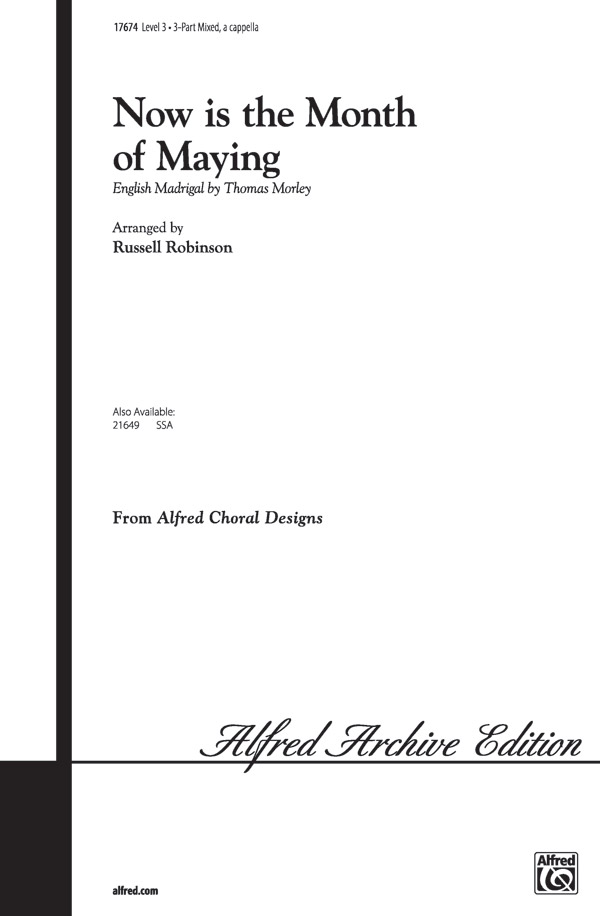In Celebration of the Human Voice - The Essential Musical Instrument
Home | Doo Wop | Barbershop | World | Contemporary | Christian | Vocal Jazz | Choral | Christmas | Instructional | Arrangements
Classical | Opera | Musicals | Personality | Young Singers | Disney | Videos | Songs | The Artists

Now Is The Month Of Maying
Music by Thomas Morley
"Now is the month of maying" is one of the most famous of the English balletts (a light dancelike part song similar to a madrigal, frequently with a 'fa-la-la' chorus). It was written by Thomas Morley and published in 1595. It is based on the canzonet So ben mi ch'a bon tempo used by Orazio Vecchi in his 1590 Selva di varia ricreatione. It was printed in Thomas Morley's First Book of Ballets to Five Voyces.
The song delights in bawdy double-entendre. It is apparently about spring dancing, but this is a metaphor for making love/sex. For example, a "barley-break" would have suggested outdoor sexual activity (rather like we might say a "roll in the hay"). The use of such imagery and puns increased during the Renaissance
Release Date: 1595
Songbooks, Arrangements and/or Media
Displaying 1-20 of 20 items.
Clifford Bartlett : Madrigals and Partsongs This collection gathers together nearly sixty of the finest examples of the secular choral repertoire into one volume. Due space is given to the magnificent sixteenth century madrigals of England and Italy, with favorite works by Gibbons and Morley placed alongside less familiar selections by Lassus, Marenzio, and Weelkes. German and French pieces are also represented, for example, with Passereau's ever-popular Il est bel est bon. Works by Haydn and Schubert lead to the nineteenth century repertoire, which includes Brahms's lovely Nachtwache, from Five Songs, Op. 104, and Pearsall's exquisite Lay a Garland. The survey is completed by Debussy's Trois Chansons de Charles D'Orleans and examples of the glorious outpouring of English Romantic partsongs, with works by Elgar, Parry, Stanford, Britten, Finzi, and Vaughan Williams. Ranging from the late fifteenth to the twentieth century, and spanning all major European countries, this is a masterly survey suitable for all choirs. Clifford Bartlett has prepared completely new editions of all pre-twentieth century pieces, going back to the earliest and most reliable manuscript or printed sources. English translations are provided to aid understanding, with playable keyboard reductions in every case. Songlist: Dindirin, dindirin, Il bianco e dolce cigno, Of all the birds that I do know, All creatures now, Nachtwache No. 1, The Evening Primrose, Never weather-beaten sail, So weich und warm, Trois chansons de Charles d'Orleans, To be sung of a summer night on the water, Come, heavy sleep, Can she excuse my wrongs, Weep You No More, Sad Fountains, As torrents in summer, My love dwelt in a Northern land, There is sweet music, Fair Phyllis I saw sitting all alone, My spirit sang all day, Since first I saw your face, Lieto godea, Amor vittorioso, Ah, dear heart, The silver swan, What is our life?, Tanzen und springen, Ach, Weh des Leiden, Die Harmonie in der Ehe, Innsbruck, ich muss dich lassen, Farewell, dear love, Mille regrets, and more Clough-Leighter : The A Cappella Singer - Female Voice "The A Cappella Singer" books, of which this is the second, are designed to bring much of this music in most engaging variety and excellence into schools, colleges, universities, clubs, communities and homes. While the other books in this series are designed for either the male or female voice, this book is designed for a mix of both, containing Madrigals and Ayres with all their grace, wit and lyrical charm; the ineffably lovely and truly religious music of Bach, Brahms and other composers nearer our own times; and fine arrangements of folk songs: this is an endlessly rich field containing most of the best choral music in the world. Songlist: Now Is The Month Of Maying, Sing we and chant it, Adieu, sweet Amarillis, Weep, O mine eyes, On the plains, Fairy trains, The Nightingale, Strike it up, Tabo, The Silver Swan, With dropping wings, ye Cupids come, Charm me asleep, Radient stars, above the mountains glowing, The Old Woman and the Pedlar, Come, lasses and lads, 'Tween the mount and deep, deep vale, The Beetle's Wedding, Tiritomba, Touro-louro-louro!, In dulci jubilo, Rejoice, ye Christian men, rejoice, The Slumber of the Infant Jesus, Jesu! Rex admirabilis, Adoramus te, Christe, Tanquam agnus, Vere languores nostros, Lo, a voice to heaven sounding, An angel said to Mary, Christ the Lord hath risen, O filii et filiae Gustav Holst : Five Partsongs This set comprises many of Holst's lesser known choral settings. Her eyes the glow worm lend me and Come to Me are published here for the first time and the others were previously out of print. The selection will offer choirs a varied selection of pieces that will prove both interesting and rewarding. Repertoire well worth exploring. Songlist: Dream Tryst, Ye Little Birds, Her Eyes the Glow-Worm Lend Thee, Now Is The Month Of Maying, Come to Me King's Singers : Madrigals Volume 2 This collection of four-part pieces has been drawn from the King's Singers Madrigal History Tour. Included are pieces intended to illustrate the enormous range of styles within the title madrigal. The introduction has performance notes and translations, with a pronunciation guide in the back. This is an excellent way to introduce madrigals to your group. Songlist: Gentil Senora Mia, So Trinken Wir Alle, Ach, Weh Des Leiden, Tanzen Und Springen, Or Si Rallegri Il Cielo, Valle, Che de'Lamenti Miei Se' Piena, Amor Vittorioso, Contrapunto Bestiale Alla Mente, Zefiro Torna E'l Bel Tempo Rimena (Monteverdi), Triste Depart, Bon Jour: Et Puis, Quelles Nouvelles?, Now Is The Month Of Maying, O Grief ev'n On The Bud, The Silver Swan, Too Much I Once Lamented Philip Ledger (editor) : Oxford Book of English Madrigals The madrigal composed in England during the late sixteenth century and early seventeenth centuries include some of the finest music of the period and are possibly superior in truth and expressiveness even to the madrigals composed in Italy, where the form was invented and flourished over a long period. Faced with many hundreds of possible candidates for inclusion in the edition, the editor worked on the principal that the major composers would each be represented by several madrigals, and the lesser figures by one or more. But no madrigal would be included if it fell below the high standard set by the collection as a whole. Over 60 madrigals are included. Songlist: Those Sweet Delightful Lilies, All Creatures Now, Weep O Mine Eyes, Lullaby My Sweet Little Baby, This Sweet and Merry Month of May, Though Amaryllis Dance, Come Gentle Swains, Poor is the Life, Quick Quick Away Dispatch!, No Haste But Good!, Fair Nymphs I Heard One Telling, Fair Phyllis I Saw, Consture my Meaning, Ah Dear Heart, Dainty Fine Bird, O that the Learned Poets, The Silver Swan, Trust Not to Much Fair Youth, What is our Life?, Come Away Sweet Love, See What a Maze of Terror, April is in my Mistress' Face, Fyer Fyer!, Hard by a Crystal Fountain, I Love Alas this Tormenting, My Bonnie Lass She Smileth, Now Is The Month Of Maying, Sing We and Chant it, Through Philomela Lost Her Love, Whither Away so Fast?, and more Roger Emerson : A Cappella in Three Parts (Concert Collection) Finding ways to build confidence in your young singers to cut the strings from the piano and sing without accompaniment. This collection has been carefully curated for positive success for your choir. Songlist: Now Is The Month Of Maying, The Star-Spangled Banner, Good Timber Grows, Innkeeper, Time Gone Russell Robinson : English Madrigals A sumptuous edition of an the cappella standard "April Is In My Mistress' Face" from the madrigal repertoire by Thomas Morley. Available for 3-part mixed voices, Russell Robinson's new adaptation features flowing contrapuntal lines, appropriate vocal ranges, and tasteful editor's marks for a truly authentic performance. Enjoyable to sing, valuable to teach, and splendid to hear. "Fair Phyllis" is another well-edited arrangement by Russell Robinson from the madrigal repertoire. Sung a cappella, or with the piano, the men's part spans only six notes in an easy range for changing voices. Charming secular text, light polyphonic texture, changing meters, and contrasting dynamics. Fair Phyllis is perfect as a first madrigal or as a Renaissance feature on any program. "Sing We And Chant It" - Introduce your 3-part choir to madrigal singing with this wonderful new edition of the Thomas Morley classic designed especially for young singers by Russell Robinson. Reduced to three voice parts, this edition still sounds full and captures all the spirit and joy of madrigal singing. Suitable for large choirs as well as small groups. Add this work to your choral library and use it year after year. An excellent teaching piece...but perform it at concert and festival time, too. Songlist: Now Is The Month Of Maying, How Merrily We live, Fair Phyllis, Sing We And Chant It, April Is In My Mistress' Face, Fair Phyllis, Now Is The Month Of Maying, How Merrily We live Russell Robinson : Madrigals for 3-Part Mixed Vol 2 "Now is the Month of Maying" - Morley's famous madrigal is arranged perfectly for 3-part mixed voices. Excellent for developing choirs and small vocal ensembles. Limited range male part. "How Merrily We Live" - Another well-edited arrangement by Russell Robinson of a light and spirited work from the madrigal repertoire. It's the perfect choice for any SSA or 3-part mixed choir, with or without experience in madrigal singing. May be performed a cappella or with piano doubling the voices. Perfect for developing part singing in today's treble and mixed choirs. "Fair Phyllis" - Another well-edited arrangement by Russell Robinson from the madrigal repertoire. Sung a cappella, or with the piano, the men's part spans only six notes in an easy range for changing voices. Charming secular text, light polyphonic texture, changing meters, and contrasting dynamics. Fair Phyllis is perfect as a first madrigal or as a Renaissance feature on any program. "Counterpoint of the Animal" - Sixteenth century Italian composer Adriano Banchieri must have had quite the sense of humor. This classic light-hearted concert work has been a staple in choral repertoire for decades. Now Russell Robinson brings us a new setting that will add a touch of classy fun to any serious concert. "My Bonnie Lass" - This arrangement of a favorite Thomas Morley madrigal, a popular choice in the 3-part voicing, is now available for SATB and TBB choirs. Bright tonalities and buoyant contrapuntal textures display the sound of Renaissance choral music. Another fine Robinson edition. Songlist: My Bonnie Lass, Now is the Month of Maying, How Merrily We Live, Fair Phyllis, Counterpoint of the Animal Theron Kirk : Sing We and Chant It Introduce junior high and middle school students to the joys of madrigal singing with this outstanding collection. Perfect for young , developing voices, this collection features some of the best known madrigals skillfully arranged for three part mixed voices by Theron Kirk. From the "fa la la" madrigals of Morley to the German part song of Hassler, each is carefully set to compliment the voice ranges and qualities of the developing male singer. An excellent addition to the repertoire of the changing voice. Songlist: Sing We And Chant It, Now Is The Month Of Maying, In These Delightful, Pleasant Groves, My Bonnie Lass She Smileth, Matona, Lovely Maiden, Fair Phyllis I Saw, Since Robin Hood, Dancing And Springing Various Arrangers : Madrigals for Treble Voices "Oh, Follow, Follow On" (France) & "Spring, Now Spring" (Germany) add lightness to any women's choir repertoire - one of new love, the other of Spring's new birth. In French and German respectively with English translations. In three sections, "O Lovely Dove" employs overlapping legato entries marked by mild dissonance. This piece is a model of expressive writing and sung sensitively, will be moving both to audiences and performers. Let music fill your heart with joy in this delightful madrigal style piece of "With The Sound Of Singing". Easily learned and a great concert change of pace! The short piece "Kikkehihi" was written early in Schein's life and is typical of the Italian madrigal. The polyphonic writing offers each voice a melodic line to shape, and imitation to listen for the other voices. Kikkehihi is a rousing way to begin a program and to introduce the choir and audience to the charm of madrigals. Songlist: O Lovely Dove, Two European Madrigals, Now Is The Month Of Maying, Kikkehihif Various Composers : Eight Elizabethan Madrigals Eight Madrigals arranged for SSA or SSAA Choir. Songlist: The Nightingale, Seek sweet content, Now Is The Month Of Maying, Come again, sweet love, What saith my dainty darling, All creatures now are merry minded, The Silver Swan, My bonnie lass, she smileth Various Composers : Madrigals for Treble Voices This collection attempts to provide repertoire for treble-voice groups who desire to sing madrigals. Although a great wealth of madrigal literature exists for mixed voices, some attention has therefore been given to the text of each selection in order to make it more appropriate for feminine choruses. Songlist: It Was a Lover and His Lass, Let All Who Sing Be Merry, Maidens Fair of Mantua's City, The Messenger of Love, Now Is the Month of Maying, The Silver Swan Joan Frey Boytim : Easy Songs for the Beginning Mezzo-Soprano / Alto This series was designed to supplement traditional vocal instruction and works perfectly as preparatory literature for The First Book of Solos and The First Book of Solos Part II. Each piece is in English and has a limited vocal range as well as a piano accompaniment that is playable by a student pianist. The pieces include art songs, folksongs, humorous songs, and suitable vintage popular songs and are all appropriate for contest solos. The accompanying CD includes professionally-recorded accompaniments. Songlist: At Parting, Early One Morning, Ev'ry Time I Feel the Spirit, The First Primrose, Gently, Johnny, My Jingalo, If No One Ever Marries Me, It Was a Lover and His Lass, Last Night, Little Wild Rose, Long, Long Ago, The Lotus Flower, The Maiden's Wish, Mother, Oh Sing Me to Rest, Now Is The Month Of Maying, Oh, Come Again, Beautiful Spring, Shepherd, Play a Little Air!, Sing Me to Sleep, Snowbells, That's an Irish Lullaby, There Are Plenty of Fish in the Sea, Vienna, My City of Dreams, Who'll Buy My Lavender?, You Are Free Various Arrangers : The Student Singer - High Voice This collection for progressing students includes art songs, as well as arrangements of folksongs and spirituals. Songlist: Greensleeves, Jacob's Ladder, All Through the Night, Shenandoah, He's Got the Whole World in His Hands, Bright is the ring of words (VAUGHAN WILLIAMS), The Call (VAUGHAN WILLIAMS), Come again, sweet love (JOHN DOWLAND), The Gospel Train, How Can I Keep from Singing, How happy art thou (HENRY LAWES), I attempt from love's sickness (HENRY PURCELL), I Gave My Love a Cherry, It was a lover and his lass (HENRY PURCELL), Jack and Joan (THOMAS CAMPIAN), My Lord, What a Mornin', Now Is The Month Of Maying, Nymphs and Shepherds (HENRY PURCELL), Pastime With Good Company, The Silver Swan (ORLANDO GIBBONS), Sometimes I Feel Like a Motherless Child, Spring Sorrow (JOHN IRELAND), This Little Light of Mine, Weep you no more (ROGER QUILTER), What if I never speed? (JOHN DOWLAND) Various Arrangers : The Student Singer - Low Voice This collection for progressing students includes art songs, as well as arrangements of folksongs and spirituals. Songlist: Greensleeves, Jacob's Ladder, All Through the Night, Shenandoah, He's Got the Whole World in His Hands, Bright is the ring of words (VAUGHAN WILLIAMS), The Call (VAUGHAN WILLIAMS), Come again, sweet love (JOHN DOWLAND), The Gospel Train, How Can I Keep from Singing, How happy art thou (HENRY LAWES), I attempt from love's sickness (HENRY PURCELL), I Gave My Love a Cherry, It was a lover and his lass (HENRY PURCELL), Jack and Joan (THOMAS CAMPIAN), My Lord, What a Mornin', Now Is The Month Of Maying, Nymphs and Shepherds (HENRY PURCELL), Pastime With Good Company, The Silver Swan (ORLANDO GIBBONS), Sometimes I Feel Like a Motherless Child, Spring Sorrow (JOHN IRELAND), This Little Light of Mine, Weep you no more (ROGER QUILTER), What if I never speed? (JOHN DOWLAND) Various Composers : Mezzo-Soprano Classical Contest Solos This outstanding series is an encouragement to young singers in preparing a vocal solo. Songs have been carefully chosen for each voice type, after consulting many official state contest repertoire lists. Each volume includes Five art songs in English, one African-American Spiritual, one art song in Spanish, one art song in German, two art songs in italian, new editions and engravings of all songs, historical notes on each composer represented, interpretive suggestions for each song, translations for study and a preface on 'learning a song.' Each enhanced CD includes beautiful performances of each song by talented professional artists, excellent recorded accompaniment tracks for practice, pronunciation lessons in German, Italian and Spanish. In addition to piano accompaniments playable on both your CD player and computer, the enhanced CD also includes tempo adjustment and transposition softward for CD-ROM compute use only. This edition is for Mezzo-Sopranos/Altos. Songlist: An Die Musik, The Blue Bell, He Shall Feed His Flock 0, My Lord What A Lovely Morning, Now Is The Month Of Maying, Nymphs And Shepards, Ombra Mai Fu, Porque Toco El Pndero, Silent Noon, Vergin Tutto Amor Cambridge Singers : Flora Gave Me Fairest Flowers  The sixteenth-century madrigal was an Italian form. The term 'madrigal' was loosely applied to a wide variety of music, but generally denoted a polyphonic setting for four or more voices of an amorous or pastoral text which was closely depicted in the music. Thomas Morely transplanted the form into England in the 1590s; this marked the beginning of the brief but brilliant flowering of the English madrigal. Between the 1590s and the early 1620s, twenty composers published a total of 36 books of madrigals, after which the form virtually disappeared. Some of these composers, such as Morely and Weelkes, followed the Italian model closely; others, such as Byrd and Gibbons, mostly stayed with the simpler English form of the consort song, where the tune remains in one voice, word-painting is not used, and strophic form is preferred to the continuous structure of the madrigal proper. Among the twenty-one items selected for this recording there are examples of several types of piece, ranging from true Italianate madrigals such as Too much I once lamented, via more popular 'balletts' such as Fyer, fyer!, to the simple part-songs like A little pretty bonny lass. The variety, imagination, and inspired blending of poetry and music characteristic of the best of the 'English Madrigal School' afford a particular kind of delight in performance, shared equally by singer and listener. Songlist: Hark, all ye lovely saints above, Though Amaryllis dance in green, Round about in a fair ring, Adieu, ye city-prisoning towers, Flora gave me fairest flowers, Sweet Suffolk owl, As Vesta was from Latmos hill descending, Lullabye, This sweet and merry month of May, Now Is The Month Of Maying, A little pretty bonny lass, Fyer, fyer!, Too much I once lamented, My bonny lass she smileth, Ha ha! This world doth pass, Quick, quick, away, dispatch!, Dainty fine bird, Come again! Sweet love doth now invite, Mother, I Will have a husband, Draw on, sweet night, Sleep, fleshly birth, Weep, weep, mine eyes, Death hath deprived me, The silver swan, Adieu, sweet Amaryllis Cantabile - The London Quartet : In Cambridge  Recorded live in - you guessed it - in Cambridge, this male quintet is a stylistic whisper away from the King's Singers, both in terms of sound and choice of material, though the influence of the Swingles can be felt as well ("The History of Western Music"). The selections on this CD encompass several centuries, beginning with William Byrd's "Deo Gratias." Embracing the British folk ballad (Morley and Henry the VIII), and the European classical form (Chopin), the group then travels forward in time to include period classics such as "Sentimental Journey" and "The Lambeth Walk," finishing up with the wholly appropos doo wop closer, "Goodnight Sweetheart Goodnight." Songlist: Deo Gratis, Fire, Fire my Heart, Weep, O Mine Eyes, Now Is The Month Of Maying, Myfanwy, The Wee Cooper O'Fife, Pastime With Good Company, The Minute Waltz, Java Jive, Mein Kleiner, Gruner Kaktus, The History Of Western Music, Are You Lonesome Tonight?, Sentimental Journey, A Nightingale Sang In Berkeley Square, The Lambeth Walk, Goodnight, Sweetheart, Goodnight Ensemble Amarcord : Book of Madrigals A musical journey to sixteenth-century Europe with secular vocal music of the Renaissance! The vocal ensemble amarcord brilliantly interprets the music of this epoch in its newest production "The Book of Madrigals" (RK ap 10106). With this CD, the young ensemble presents Renaissance music and madrigals by European composers such as John Dowland, Thomas Morley, Ludwig Senfl, Adriano Banchieri, Orlando de Lasso, and Josquin des Prez. Cipriano de Rore's "Anchor che col partire" - one of the most popular madrigals of its time, and in arrangements and adaptations still an "evergreen" over a century later - is also masterfully sung here. With the release of "The Book of Madrigals," amarcord has added another impressive CD to its discography. Songlist: Now Is The Month Of Maying, Bonjour Et Puis Quelles Nouvells?, Bonjour Mon Coeur, Come Away Come Sweet Love, Anchor Che Col Partire, Ach Elslein, Liebes Elselein, Remember Me My Dear, Since Robin Hood, Strike It Up, Tabor, Vecchie Letrose, Innsbruck, ich Muss Dich Lassen, I Love, Alas I Love Thee, Il Est Bel Et Bon, Come Again Sweet Love Doth Now Invite, Mein Gmuth Ist Mir Verwirret, Weep, O Mine Eyes, Pastyme With Good Companye, Contrappunto Bestiale Alla Mente Quink Vocal Ensemble : English Madrigals Between 1588 and 1627, the isolation of English musical culture was broken by the influx of Italian music and composers, and during this period a beautiful collection of Madrigals with English words and composers was created. The acclaimed Quink Vocal Ensemble (Kees-Jan de Koning, bass, Harry van Berne, tenor, Paula de Wit, soprano, Machteld van Woerden, soprano, and Corrie Pronk, alto) bring us 18 perfectly-recorded madrigals from this period, three from Thomas Morley, two from Francis Pilkington, two from Thomas Tomkins, two from Thomas Bateson, two from William Byrd, one from John Farmer, four from John Wilbye, and two from Thomas Weelkes. This music is bright and romantic, with a lively grace and harmonic clarity, the result of probably the first English musical "craze!" Songlist: Now Is The Month Of Maying, Farewell, Disdainful, No, No Nigella, Why Should I Grieve?, Sweet Phylida, Phyllis, Now Cease To Move Me, Too Much I Once Lamented, Those Sweet Delightful Lilies, Phyllis, Farewell, Come To Me Grief, Forever, Come, Woeful Orpheus, Fair Phyllis I Saw, Weep, Weep, Mine Eyes, (1st Part)I Fall, I Fall, O Stay Me, (2nd Part) And Though My Love Abounding, Adieu, Sweet Amaryllis, The Nightingale, The Organ Of Delight, Hark, All Ye Lovely Saints |
Displaying 1-6 of 6 items.
This classic English madrigal by Thomas Morley (1557-1603) has been wisely edited and arranged by famed teacher/composer Joyce Eilers. The uniqueness is the voicing: SSAB, for choirs whose members number more women than men. The music is a joyful favorite now available to many more ensembles.
Arranger: Joyce Eilers | Composer: Thomas Morley
Morley's famous madrigal is arranged perfectly for 3-part mixed voices. Excellent for developing choirs and small vocal ensembles. Limited range male part.
Arranger: Russell Robinson
Carefully arranged and fun to sing, this easy, enjoyable introduction to the English madrigal is a perfect addition to any concert. Available: 3-Part Mixed.
Arranger: Roger Emerson | Composer: Thomas Morley
Morley's famous madrigal is arranged perfectly for 3-part mixed voices. Excellent for developing choirs and small vocal ensembles. Limited range male part.
Arranger: Russell Robinson | Composer: Thomas Morley
![]() Vocal Harmony Arrangements - Home
Vocal Harmony Arrangements - Home
Christian | Gospel | Standards | Musicals | Specialty | World | Barbershop | Contemporary | Vocal Jazz | Choral | Christmas
Mixed Voices | Female | Male | 8 Parts | 6 Parts | 5 Parts | 3 Parts | 2 Parts | Medleys | Solo | Folio Series | New Releases
Select a Category |
Want to Sing? - Find a Chorus Near You
List of Choruses by State | List of Choruses by City

